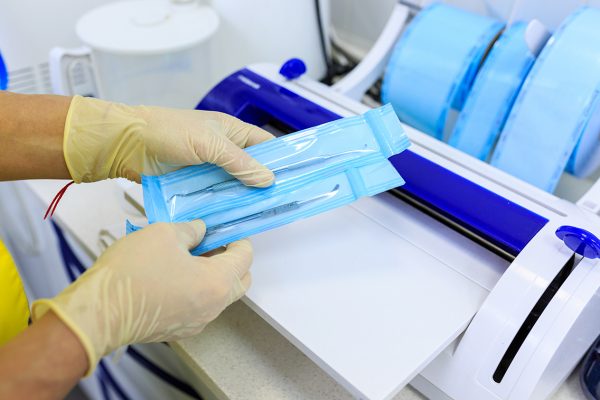Thin-gauge aluminum foil is used to make many pharmaceutical and medical sterile packages. Over the past five years, U.S. sterile packaging manufacturers have experienced a series of challenges in securing converter-grade foil from abroad.
The Sterile Packaging Manufacturers Council (SPMC®) has a newly formed sustainability/regulatory committee monitoring a self-initiated case by the U.S. Department of Commerce (DOC) involving imports of aluminum foil from China that are finished in South Korea and Malaysia. According to the Federal Register, the DOC inquiries aim to determine whether these imports “are circumventing the antidumping duty and countervailing duty orders on aluminum foil from China.”
This latest move by DOC follows other claims that date back to March 9, 2017, when the Aluminum Association asserted that dumped and subsidized aluminum foil from China was causing or threatening injury to the domestic aluminum foil industry. The complaint was seeking steep import duties exceeding 140% to be applied to imported Chinese aluminum foil. Within weeks of the claim, SPMC® Chair Dhuanne Dodrill, CEO of PAXXUS, Inc., appeared before an International Trade Commission hearing to oppose the imposition of anti-dumping and countervailing duty orders.
Shortly thereafter, on April 26, 2017, a Section 232 investigation under the Trade Expansion Act of 1962 for aluminum imports was initiated. This was referred to as the Executive Order on Aluminum Imports and was deemed a national security investigation that could result in import restrictions, duties, or tariff rate quotas on aluminum imports.
Alarmed by the potential risks these actions could have on the supply and cost of thin-gauge aluminum foil for medical packaging, the SPMC® joined the Flexible Packaging Association in a strong push against these measures.
On June 22 of that year, several representatives from SPMC® member companies testified against the Section 232 investigation during a public hearing conducted by the DOC. Later, the SPMC® issued a foil investigation advisory to medical device manufacturers detailing the potential consequences these actions could have on patient safety, affordability, and the supply chain. Ultimately, hundreds of exemptions for thin-gauge aluminum foil manufacturers were granted, but they were not easily won.
SPMC®’s sustainability/regulatory committee will closely monitor these types of cases and proactively release position statements and supporting materials that illustrate vital industry considerations and obligations.
The committee will focus on the regular communication of trade and regulatory news and updates impacting the sterile packaging industry. This will help keep SPMC® member companies, as well as their suppliers, clients, and other industry partners informed.
“Sterile packaging’s role is to protect patients against harmful contaminants,” Dodrill says. “The materials used in the manufacture of these packages are regulated, tested, and highly effective. Our new SPMC® committee will remain vigilant to the unintended consequences of trade protections and legislation that could inadvertently compromise patient safety.”
With full SPMC® member representation and a handful of meetings now under its belt, the committee is prepared going into 2023.
Lourdes Pogue is partner and creative director at Merakke. Reach her at lourdes@merakke.com.
